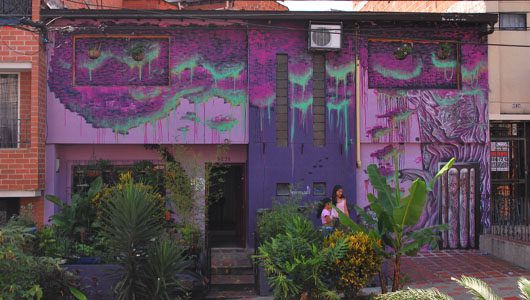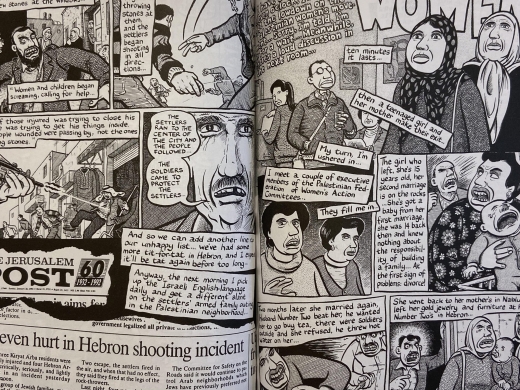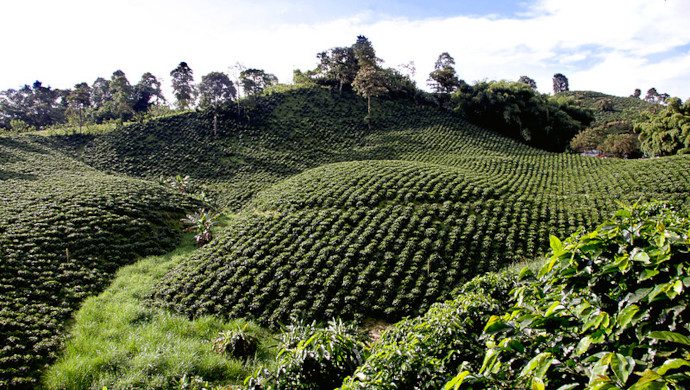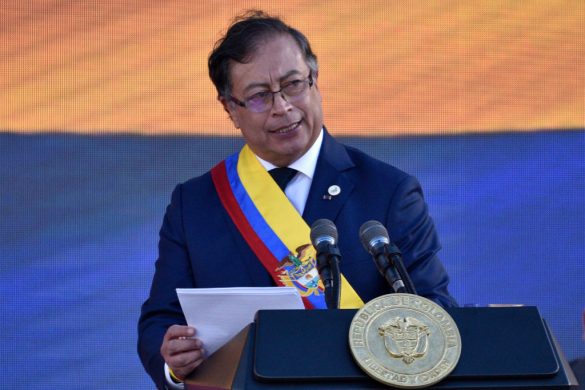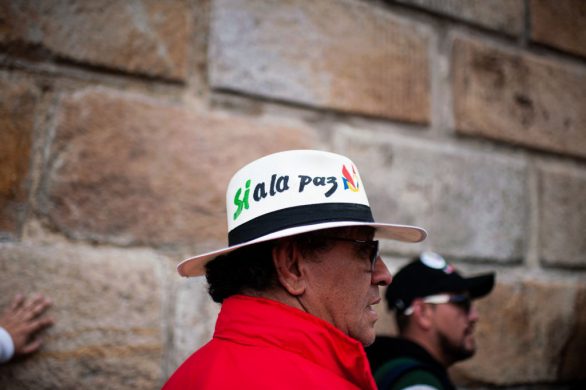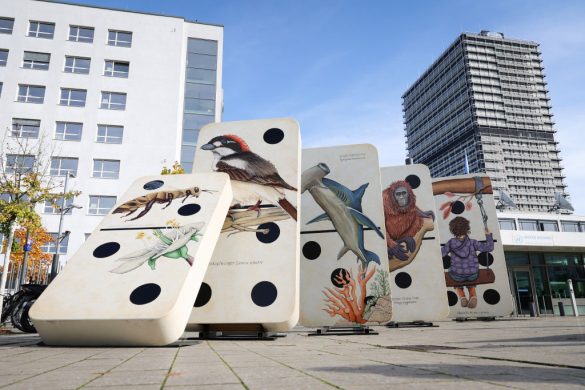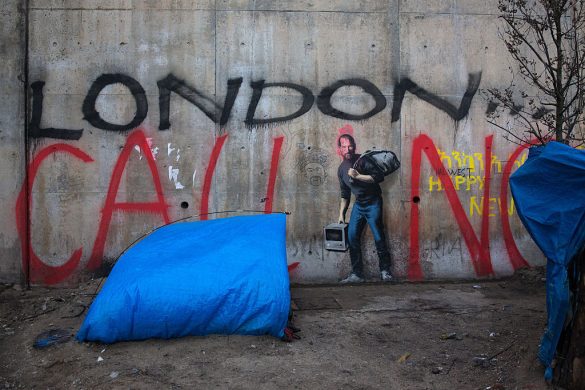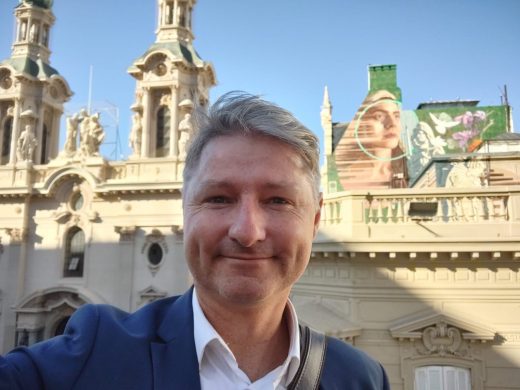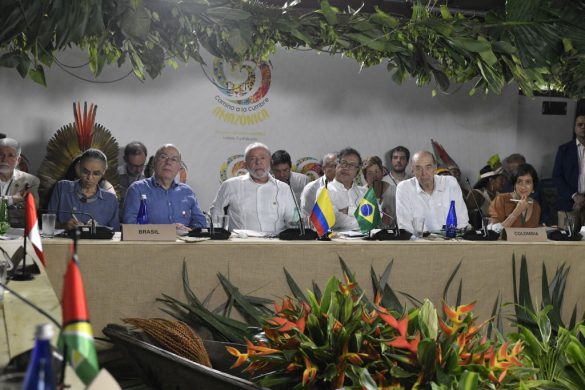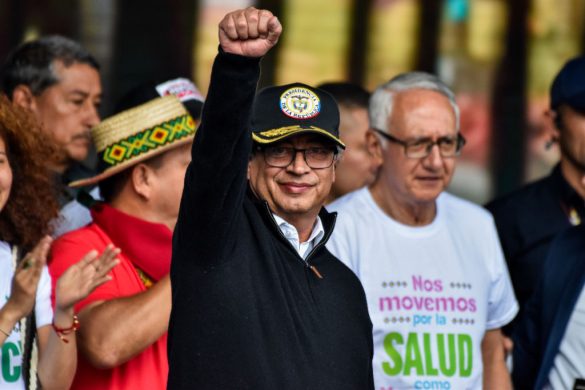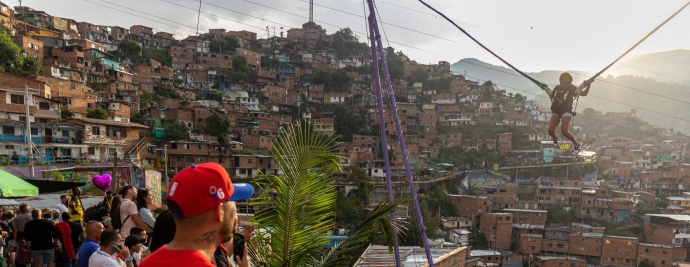In a quiet part of Comuna 13 San Javier in the Colombian city of Medellín sits a bustling house painted in many shades of purple appropriately called Morada or Casa Morada (Purple House). The house is located in a very quiet spot in the neighbourhood, known for its social problems related with violence and poverty. It is home to a collective that promotes art and culture through various projects, including a radio station and urban farming.
The house, itself a project of the Fundación Casa de las Estrategias and other organizations, hosts different activities each day of the week. On Mondays, there are usually computer workshops and research; on Tuesdays, writing workshops and introduction of new authors; on Wednesdays, poetry and music; singing lessons on Thursdays; on Fridays, radio and drawing workshops; and on Saturdays, Agroarte, an education and farming program, and graffiti school. People from all over the city — mostly young people, but also adults — come to Morada to attend.
The collective says it has “no desire to do business, nor to formalize or incorporate ourselves”:
”We are a collective with a radio station, a space (or physical dwelling), activities, partnerships, to create, enjoy and find ourselves. Pleasure moves us, sensations unite us. We move as a network by word of mouth, weaving one with another, we are not a public space or a cultural seat of the government. If you have an artistic, cultural, journalistic, or investigative project and need a place to create, to share, you are welcome!”
In an interview for the daily El Colombiano to mark the first year of Morada, active since 2012, Lucas Jaramillo, a leading member of the collective, commented:
”We came here to create. From the freedom to ‘do’, we want to establish a critical position towards a city that awakens love and hate.”
Kreativitet som svar på vold
Throughout its existence, the house has given shelter to various cultural and urban art projects, such as the hip-hopper and cultural promotor Jeihhco, which somehow also made them unwitting witnesses to the violence still present in the city, as recorded in a note from 2012 about the murders of rappers in the area, one of them known as Duke:
”At Casa Morada in the San Javier quarter, silence and fear was breathed. The atmosphere that existed, only three days after the death of “The Duke” [a well-known hip-hop artist the neighborhood], murdered on October 30, was full of tension. Apparently the leaders and rappers assembled there were seeking the intervention of a priest to look for a solution to the problem of security after threats were received the day before. […] The reason for the visit to the Casa Morada […] was to learn more about the past of Élider Varela, [known as] “The Duke,” as rapper and community leader.”
Far from intimidating the group, this experience prompted them to respond with creativity and solidarity to these unfortunate events. Carlos Mario Cano, writing for darioadn.co, relates:
”Two symbolic acts for the city were born from Morada: a week after threats against rappers in [district] 13, in November of last year (2012), the station took to the streets to give “purple hugs”: meetings with the people to remind them that everyone should welcome these young people whose rights had been violated. The second act was born after the murder of the mime Julián Taborda in the village of Altavista. On that occasion, in early February of this year (2013), the Parcharte [‘mending’ in English] Federation — also born from Morada — decided to put on an event with various cultural expressions in this district plagued by violence.”
Radio station og Agroarte
The station mentioned in the above paragraph is Morada Estéreo (Stereo Morada), one of the most popular projects at Morada. In its own words:
”With Stereo Morada, we are trying for an independent media, completely free, uncensored. We discovered the identity and editorial line from the people we met, through their searches, their creations, their help. […] No unnatural voices, bland without scripts, without brutality, unrushed, we are a vibrating network of broadcasters and filmmakers. Here one will find people proposing, many of them dissatisfied, always exploring the generosity of the exchange.
We also try to give voice to those who have none, we are against discrimination and segregation, contributing to open a Medellin that many are creating, without borders, exchanging with the world.”
I had the opportunity to talk with Walter González about the radio project, where he shares that the goal of the radio station is to open spaces for the people of the area. The station has be on air for two years and as a virtual radio, they have listeners almost everywhere:
Another of Morada’s projects is Agroarte, a project that combines agriculture, land, education and the social fabric of the city. On Stereo Morada’s YouTube channel, there is an interview with @agroarte, the rapper who leads this project, where explains that an individual spends their whole life learning and relearning and getting involved with others, even with the environment surrounding them:

